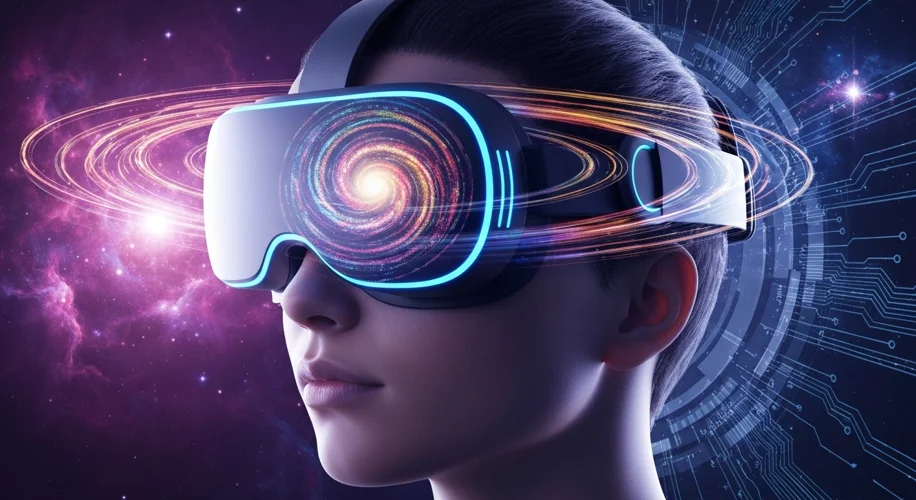Okay, so hear me out. We’re living in 2025, and VR is already pretty wild. We’ve got headsets that track our movements, give us haptic feedback, and can literally transport us to other worlds. But what if I told you we’re on the cusp of something even crazier? Something straight out of a science fiction movie: Full Dive VR.
Full Dive VR, for those who haven’t binged all the anime on this topic, is the idea of a VR system that interfaces directly with your brain. No bulky headset, no controllers – just pure, unadulterated immersion. Think of it as plugging directly into a digital world, experiencing it with all your senses, exactly as you would in real life.
What gets people so hyped about this? Well, let’s be real, the possibilities are mind-blowing. Imagine time travel. Not just watching a historical documentary, but being there. Walking through ancient Rome, feeling the cobblestones under your feet, hearing the chatter of the marketplace. Or what about visiting fictional worlds? Step into Middle-earth, explore Hogwarts, or even pilot a starship through the galaxy. These aren’t just games anymore; they’re entire realities you can inhabit.
The tech behind this is still largely theoretical, drawing inspiration from neuroscience and advanced neural interface research. We’re talking about systems that can read brain signals and feed digital information back in a way that feels completely natural. It’s a huge leap from the current VR tech, which relies on external sensors and displays.
Now, there’s a lot of hype, and it’s easy to get carried away. Building a system that can safely and accurately interface with the human brain is one of the most complex challenges imaginable. There are massive hurdles to overcome, from understanding neural pathways to developing the hardware and software that can handle such intricate interactions.
But here’s the catch: the progress in AI and neural interface technology is accelerating like crazy. We’re seeing breakthroughs in brain-computer interfaces (BCIs) that are already helping people with paralysis control prosthetic limbs or communicate. These aren’t full dive systems yet, but they’re stepping stones, proving that direct brain-computer communication is possible.
What excites me most, as someone deep in computer engineering and AI, is how this could redefine human experience. It’s not just about gaming or entertainment, though that’s a huge part. Think about education – learning history by living it. Or therapy – creating safe environments to confront trauma or phobias. The potential applications are vast and, frankly, a little scary in their scope.
Is it going to happen tomorrow? Probably not. But the foundations are being laid, and the ambition is real. Full Dive VR might still sound like pure science fiction, but given the pace of innovation, I wouldn’t bet against it becoming our reality sooner than we think. It’s a fascinating frontier, and I can’t wait to see where it takes us.

